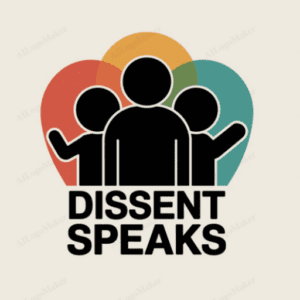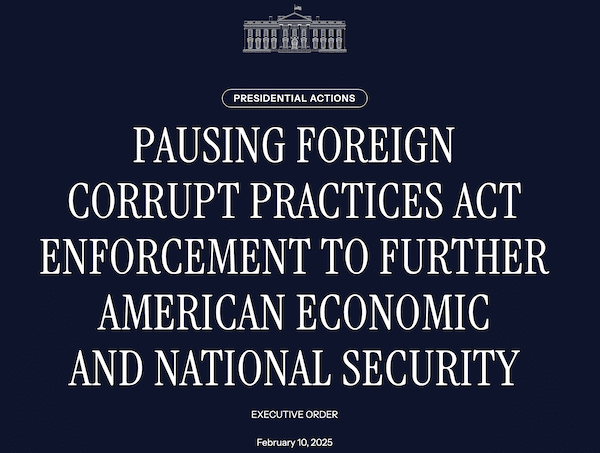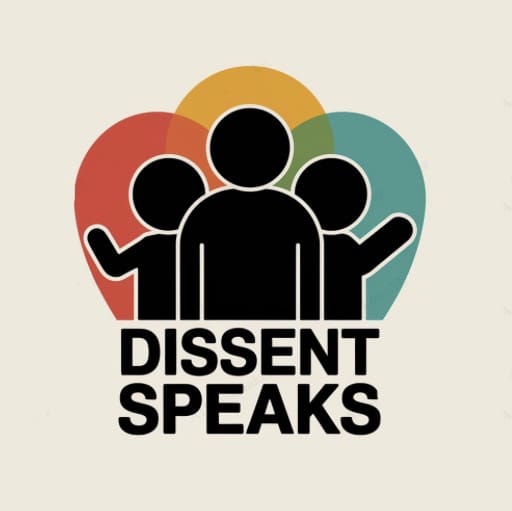On February 10, 2025, the White House issued an executive order to pause enforcement of the Foreign Corrupt Practices Act (FCPA), framing the action as necessary for American economic and national security interests. This analysis examines the implications, motivations, and potential consequences of this significant policy shift.
The FCPA, enacted in 1977, has been a cornerstone of American anti-corruption efforts and international business ethics for nearly five decades. This sudden pause in its enforcement warrants careful scrutiny, particularly regarding its timing, justification, and potential ramifications for both domestic and international interests.
Key Questions
Several critical questions emerge from this executive action:
- Why is this pause being implemented now, in early 2025?
- What specific economic and security threats is this meant to address?
- How does this action align with or contradict existing international anti-corruption frameworks?
- Who truly benefits from this enforcement pause?
Analysis of Key Components
1. National Security Justification
The executive order explicitly links FCPA enforcement to national security concerns. However, this connection raises several red flags:
- The order provides no concrete evidence of how current FCPA enforcement threatens national security
- It assumes a direct correlation between reduced anti-corruption enforcement and enhanced economic competitiveness
- The language suggests a concerning shift toward viewing international business ethics as subordinate to national interests
2. Economic Competitiveness Claims
The order’s economic arguments warrant particular scrutiny:
- It characterizes FCPA compliance as an impediment rather than a safeguard
- No data is provided to support claims of economic harm from current enforcement
- The potential economic costs of reduced anti-corruption measures are not addressed
3. Implementation Structure
The mechanics of the pause reveal potential concerns:
- The initial 180-day review period can be extended unilaterally by the Attorney General
- New investigations require explicit Attorney General approval
- The order allows for “remedial measures” regarding past enforcement actions
Stakeholder Impact Analysis
American Businesses
- Short-term: Potential reduction in compliance costs
- Long-term: Risk of reputational damage and reduced international trust
International Relations
- Potential strain on diplomatic relationships
- Risk of reciprocal actions by other nations
- Possible undermining of global anti-corruption efforts
Public Interest
- Reduced transparency in international business dealings
- Potential increase in corporate misconduct
- Weakened anti-corruption standards
Hidden Agendas and Motivations
Several concerning aspects suggest underlying motivations beyond stated objectives:
- Timing Considerations
- Implementation early in 2025 suggests political rather than policy-driven timing
- No clear precipitating event or crisis justifying immediate action
- Power Consolidation
- Centralizes enforcement decisions with the Attorney General
- Creates opportunity for political influence in anti-corruption efforts
- Corporate Influence
- Benefits large multinational corporations most directly
- May reflect corporate lobbying priorities over public interest
Public Interest Analysis
The executive order’s impact on public interest is multifaceted:
Benefits
- Potential short-term economic advantages for U.S. companies
- Reduced regulatory burden on American businesses
Risks
- Weakened anti-corruption standards
- Reduced corporate accountability
- Potential for increased international corruption
- Damage to America’s moral leadership role
Recommendations for Public Engagement
Citizens and stakeholders should consider several actions:
- Stay Informed
- Monitor implementation of the pause
- Track any changes in corporate behavior
- Follow international responses
- Engage in Oversight
- Contact congressional representatives
- Participate in public comment periods
- Support transparency initiatives
- Business Community Response
- Maintain voluntary compliance standards
- Document impacts of the enforcement pause
- Engage in industry-led anti-corruption initiatives
Conclusion
This executive order represents a significant shift in American anti-corruption policy that warrants serious concern. While framed as an economic and security measure, it potentially undermines decades of progress in corporate accountability and international cooperation against corruption.
The lack of concrete evidence supporting its necessity, combined with the broad scope of the enforcement pause, suggests this action may serve narrow interests rather than broader public good. Citizens, businesses, and policymakers should carefully monitor its implementation and impacts while maintaining voluntary commitment to anti-corruption principles.
Most critically, this order may represent a dangerous precedent of sacrificing ethical standards for perceived economic advantages. The long-term costs to American credibility, international relationships, and corporate governance could far outweigh any short-term benefits.
Call to Action
Readers are encouraged to:
- Maintain awareness of this policy’s implementation
- Engage with elected representatives about concerns
- Support continued voluntary anti-corruption efforts
- Monitor and report potential negative impacts
- Participate in public discourse about maintaining strong anti-corruption standards
The preservation of anti-corruption standards remains vital to both American interests and global business ethics, regardless of temporary policy changes.


